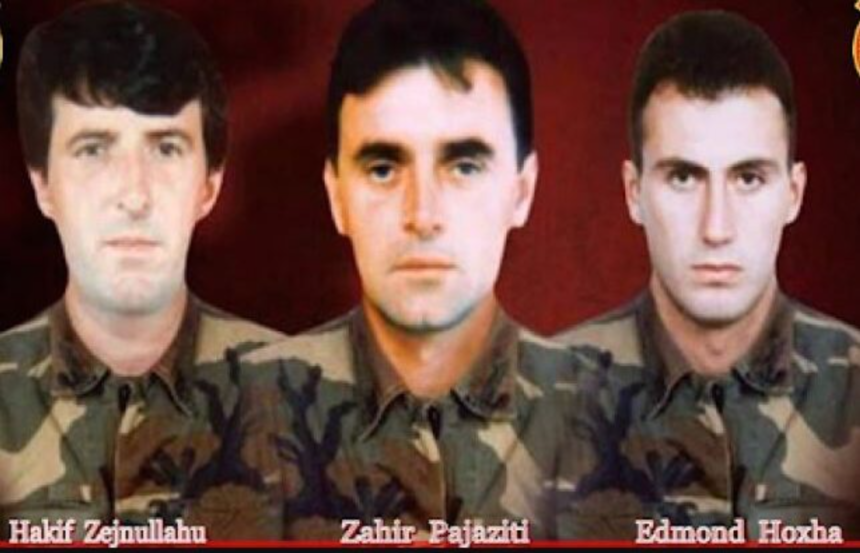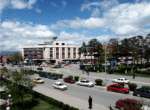On January 31, 1997, one of the first major battles of the Kosovo Liberation Army (KLA) took place.
Three strategists—Zahir Pajaziti, Hakif Zejnullahu, and Edmond Hoxha—were traveling from Pristina toward Vushtrri when their group was discovered by the Serbian security forces, who had set an ambush in the village of Pestovë. The three fell heroically in battle with them.
Zahir Pajaziti began his military activities in the 1990s.
Amid the general strikes in Kosovo in September 1990, Zahir and other activists started working to establish a security network in Kosovo. As a result of this work, Zahir and the activists from Orllan formed the Guerrilla Unit Headquarters in Orllan.
In 1991, as illegal activities in Kosovo began to be coordinated with legal ones, Zahir went to Albania for military purposes.
Upon returning to Kosovo in 1992, his group was discovered, and Zahir had to go into hiding for several months. By 1992, he had contributed to the supply of arms to the units established around Orllan.
In 1994, Zahir expanded his engagement to other parts of Kosovo to help create the KLA. He became one of the founders of the General Staff of the KLA and a member from the beginning, where he started coordinating political and military activities.
At this time, Zahir was known as an excellent organizer and executor of guerrilla attacks against Serbian forces in Kosovo, particularly in the Llap region.
Throughout his activities, Zahir received the most support from his cousin, Fadil Pajaziti, a businessman, who provided almost all of the funding for their efforts.
On January 31, 2008, on the 11th anniversary of his fall, the President of Kosovo, Fatmir Sejdiu, awarded Zahir Pajaziti with the highest state decoration, the Order of the Hero of Kosovo.
Zahir was a leader of one of the main branches of the war, which was later naturally integrated into the Kosovo Liberation Army. As a leader of this branch, he was also one of the co-creators of the KLA.
Edmond Hoxha, a native of Junik, aimed to create new dimensions for his family tradition and for Kosovo.
Having witnessed the arrest and imprisonment of his older brother, Xhaviti, when he was only six years old, Edmond felt the pain of it but also understood the strength in enduring hardship without breaking. He decided to become a pillar of resistance, no matter how painful it was.
Edmond was a student, balancing the desire to become both a military man and a scholar. He chose a different path in life, yet it was deeply intertwined with the struggles and sacrifices of his people.
Hakif Zejnullahu was a paradox in terms of his silence and his work. While his silence was extraordinary, his contributions were equally significant.
He was one of the most remarkable figures of the war, staying in his assigned role, as Zahir Pajaziti’s deputy and assistant, quietly yet effectively. Hakifi and Zahiri were not just uncle and nephew, but shared all virtuous qualities in their work and commitment.







